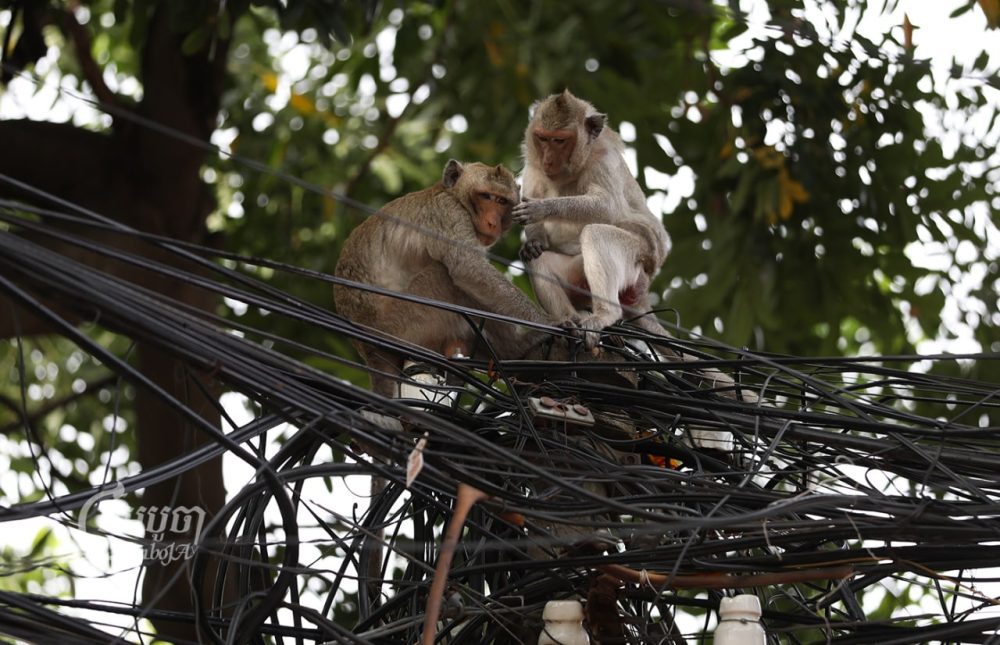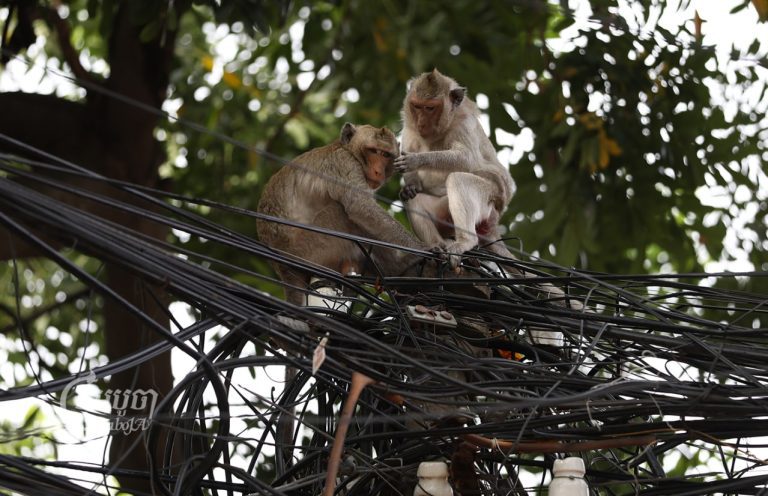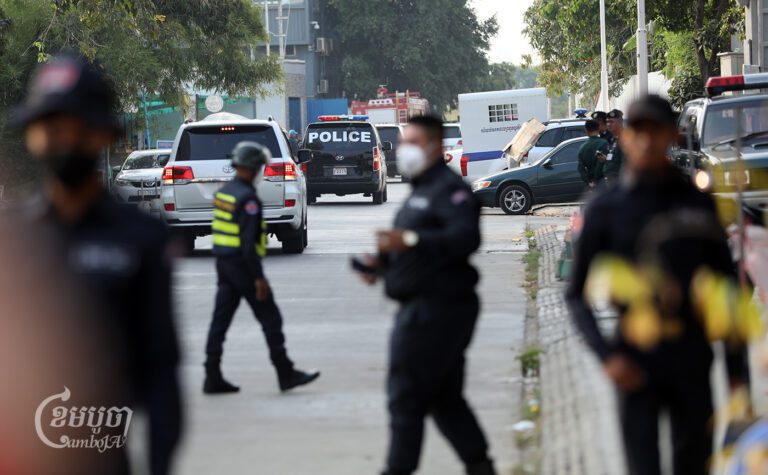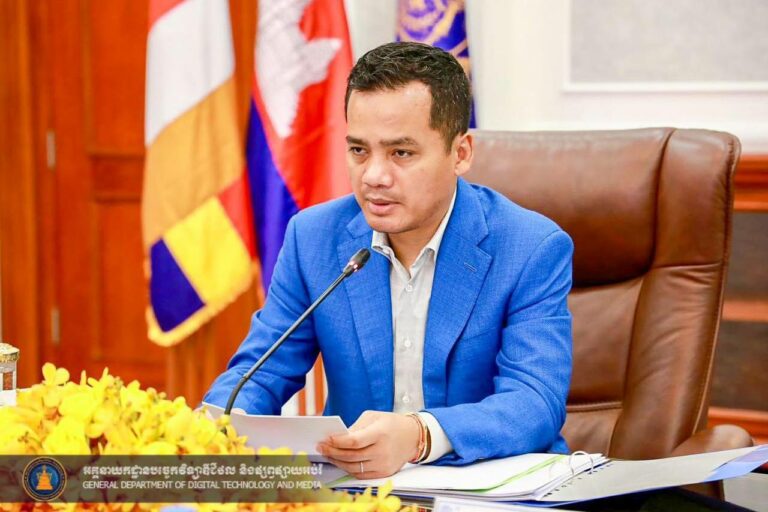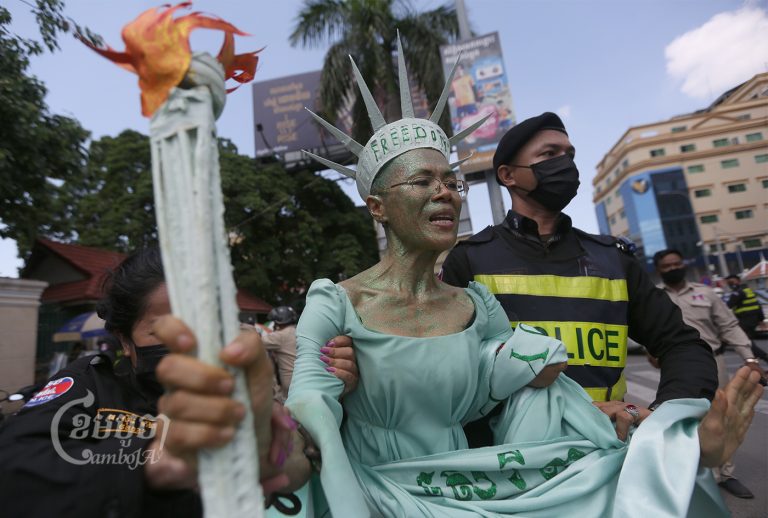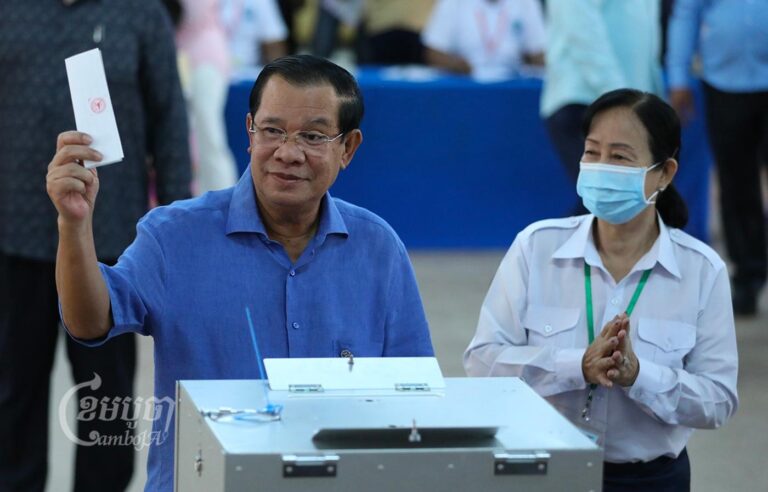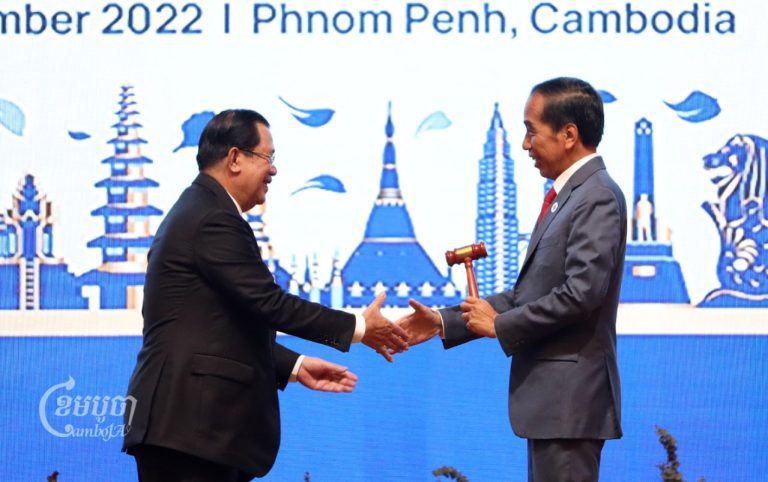Cambodia-registered Vanny Bio Research, whose owner and five employees, alongside two Cambodian officials, were accused by U.S. authorities of smuggling wild-caught monkeys in Cambodia to the U.S., has denied any wrongdoing in its business operations, according to a company statement.
Vanny, which has been “breeding and exporting captive bred long-tailed macaques since 2005 for scientific and academic research,” said it has “stringent internal control and monitoring measures” to ensure exported primates are raised in humane conditions that conform to international standards.
Last week, U.S. authorities arrested Kry Masphal, deputy director of the wildlife and biodiversity department at the Ministry of Agriculture, Forestry and Fisheries, in New York while he was transiting to Panama for a Convention on International Trade in Endangered Species (CITES) conference.
The endangered macaques have been protected under CITES since 1977.
Masphal and Keo Omaliss, director of the ministry’s Forestry Administration, were indicted on charges of smuggling and conspiracy to violate U.S. anti-wildlife trafficking and endangered species protection laws, a statement from the U.S. Attorney’s Office for the Southern District of Florida said.
In addition to the two Cambodian officials, Vanny owner James Man Sang Lau of Hong Kong, the company’s general manager Dickson Lau, also of Hong Kong, and four other employees were indicted on eight counts, the U.S. Attorney’s Office said. Each member of the alleged primate smuggling ring faces up to more than 100 years in prison.
Omaliss could not be reached for comment this week, but the Agriculture Ministry said in a statement on Thursday that it was “surprised and saddened” to learn of Masphal’s arrest and would make efforts to “seek justice” for its officials.
Agriculture Ministry spokesperson Im Rachana on Monday said the Agriculture and Foreign Affairs ministries and the Cambodian Embassy in New Work were seeking an attorney to defend Masphal. Foreign Ministry spokesperson Chum Sounry said he had no information to provide to a reporter.
The Agriculture Ministry said in its statement that monkeys had been farmed in Cambodia and exported for pharmaceutical research for medicines and vaccines as well as cosmetic products since 2005.
“They are not caught from the wilderness and smuggled out, but farmed in decent manners with respect to good hygiene and health standards so as to preserve their gene pool. As obliged by CITES convention and applicable laws, only the next generation of monkeys are exported,” it said.
Rachana echoed the ministry statement, saying exported long-tailed macaques were not collected in “parks or the wild.”
“In the U.S., long-tailed macaques are regarded as a protected species. There are crab-eating macaques everywhere [in Cambodia]; we can see them in Wat Phnom,” the spokesperson said, using another name for the species.
According to the U.S. Attorney’s Office, however, Vanny’s James Lau and Dickson Lau “owned and managed a series of related corporations that conspired with black market collectors and corrupt officials in Cambodia to acquire wild-caught macaques and launder them through the Cambodian entities for export to the U.S. and elsewhere, falsely labelled as captive bred.”
Masphal and other ministry employees allegedly delivered wild long-tailed macaques to a facility in Pursat province, where Vanny operates a monkey-breeding center. Masphal was paid by co-conspirators for the “unofficial” macaques, the U.S. Attorney’s Office said.
In its undated statement, which Rachana provided to CamboJA on Monday, Vanny noted that the International Union for Conservation of Nature had changed the status of long-tailed macaques from vulnerable to endangered.
“We believe that captive breeding sites are now more important than ever to ensure a sustainable future for these animals and the scientific industry,” the company said. “Hence, we are pleased to be at the forefront of this effort.”
Vanny added that it will “stand firm by its business model” and “continue to ensure relevant rules and regulations are adhered and respected.”
(Additional reporting by Phon Sothyroth)


